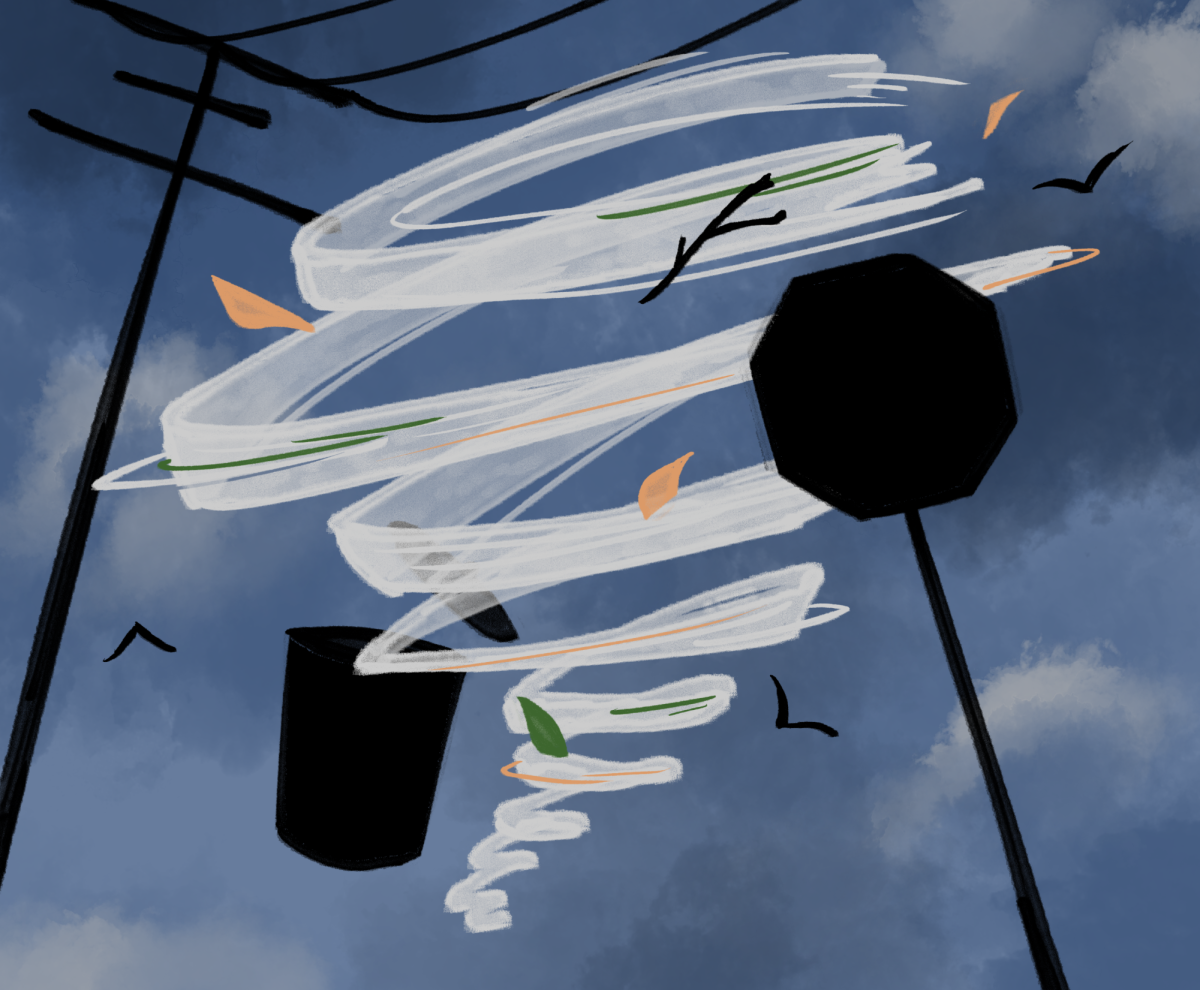People stranded in the dark, homes without power and two lives lost were just a few of the things that the bomb cyclone brought to Western Washington two weeks ago. The cyclone, which hit California, Oregon and Washington, left many homes on its path without power.
In total, there were two storms, the first lasting Nov. 19 to 20 and the second smaller one hitting the state Nov. 22. The first cyclone killed much of Western Washington’s power, creating outages that lasted for four days, between Nov 19 and 22. At its peak, the bomb cyclone affected around 700,000 households on the West Coast.
Qasim Ali, an alumnus of Seattle University who lives in Redmond and was affected by the storm, shared his experience and that of his family during the storm.
“My family’s lived in Redmond since the mid-90s, and this is the longest we’ve been without power from our power company in my lifetime and my family’s time on the West Coast. We were out of power from Tuesday night to Sunday afternoon,” Ali said.
Luckily, Ali’s family was one of the few who could rely on power generators. He said they had to make multiple trips in harsh conditions to refill the generator daily until the power returned.
Ali shared the aftermath of the first hit by the hurricane when he went to get gas with his father.
“We counted probably five to six down trees just driving around the Redmond-Bellevue area. There were massive trees uprooted right on the sides of roads,” Ali said. “I remember, near Redmond Elementary, there was a huge tree at Anderson Park that had fallen across the street, like there were entire streets blocked.”
Yonathan Maaza, a second-year business analytics major who lives in Auburn, said that his family had to live off of a small electrical CAT battery, that was just enough to turn the lights on in their house during the power outage.
“We charged it up, and we [used] that for lighting, and we also [used] candles to just move around the house,” Maaza said.
Thanks to Seattle U campus resources, other obstacles Maaza faced, such as charging his phone and getting cell and Wi-Fi service, were solved.
“I just kind of lived off of Seattle because it had electricity, and that’s how I charged my phone. That’s how I did my homework. It was all in Seattle,” Maaza stated. “I just kind of stayed in the library and the student center, just charging my phone using the internet for day-to-day uses.”
Maaza wasn’t the only student relying on Seattle U as a central resource during this trying time. Nadeen Radi, a fourth-year finance major living in Covington, talked about how she also used campus for most of the power outage.
Radi stayed at her friend’s place in the Yobi campus apartments and used the Student Center Commuter Link. She would then return to her home in Covington and return to campus to bring items to stay at her friend’s place.
“I was eating the free lunches at the commuter link. It was really helpful because I packed lunch from home. Since all the food went bad because our fridge didn’t have power and nothing was working, I had no food to eat, and I can’t afford to buy food for a whole week,” Radi said.
Additionally, Radi talked about how she spent most of her time in the library working on her assignments. She charged all of her equipment while in the library so that she could use it if she ever needed to go home.
The bomb cyclone left much of Western Washington with serious damage, affecting families in its wake. Despite the devastation, the storm has shown us that there will always be support from family members or the Seattle U campus.








